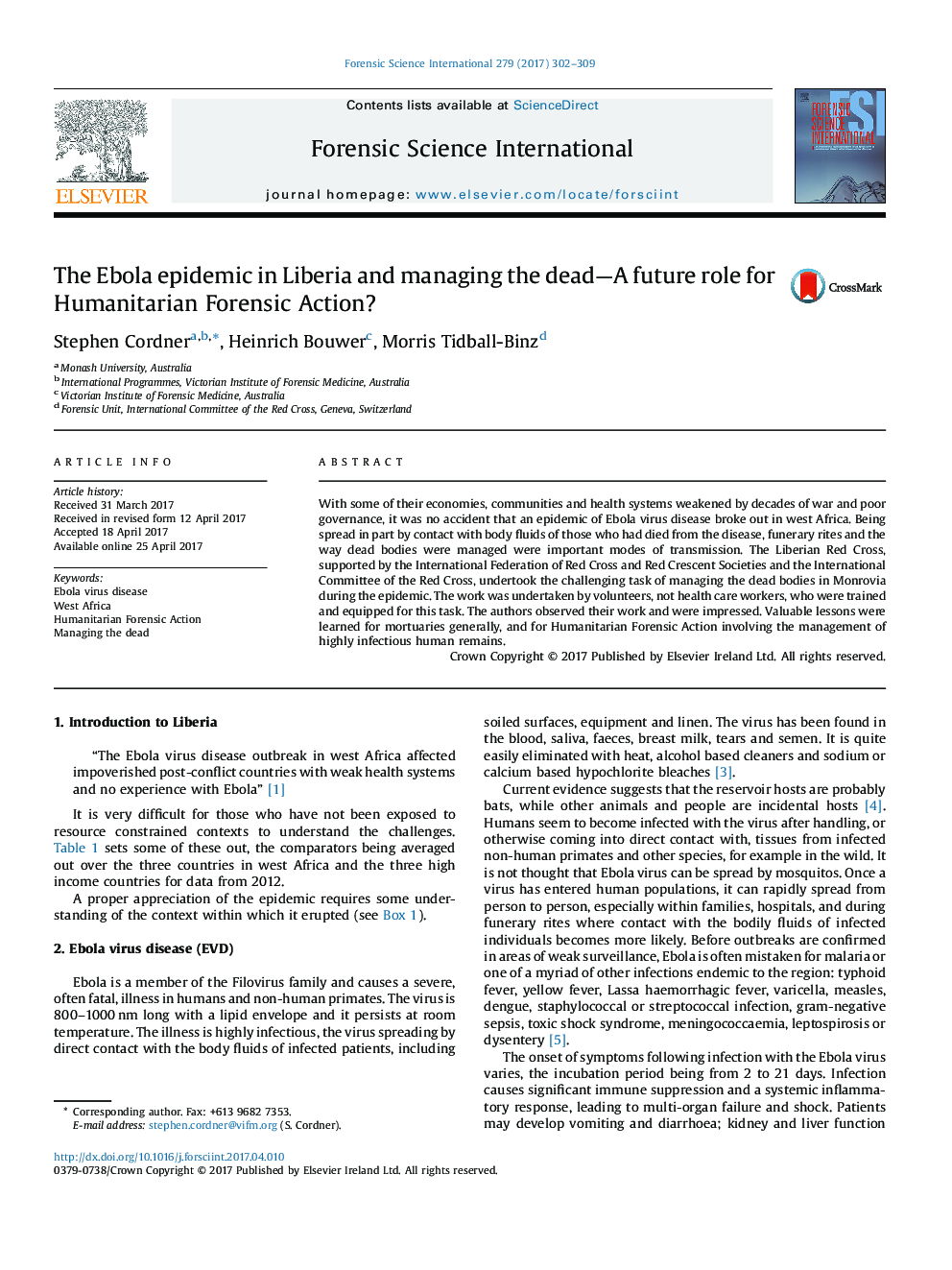| Article ID | Journal | Published Year | Pages | File Type |
|---|---|---|---|---|
| 6462176 | Forensic Science International | 2017 | 8 Pages |
â¢West Africa was vulnerable to an outbreak of Ebola virus disease.â¢Direct contact with the dead or their bodily fluids was one mode of disease spread.â¢The dead appeared to be well managed in Monrovia, but this is not quantified.â¢However, the outbreak exacted a severe toll on health care workers in west Africa.â¢Forensic mortuaries need to contemplate how they will respond in future outbreaks.
With some of their economies, communities and health systems weakened by decades of war and poor governance, it was no accident that an epidemic of Ebola virus disease broke out in west Africa. Being spread in part by contact with body fluids of those who had died from the disease, funerary rites and the way dead bodies were managed were important modes of transmission. The Liberian Red Cross, supported by the International Federation of Red Cross and Red Crescent Societies and the International Committee of the Red Cross, undertook the challenging task of managing the dead bodies in Monrovia during the epidemic. The work was undertaken by volunteers, not health care workers, who were trained and equipped for this task. The authors observed their work and were impressed. Valuable lessons were learned for mortuaries generally, and for Humanitarian Forensic Action involving the management of highly infectious human remains.
